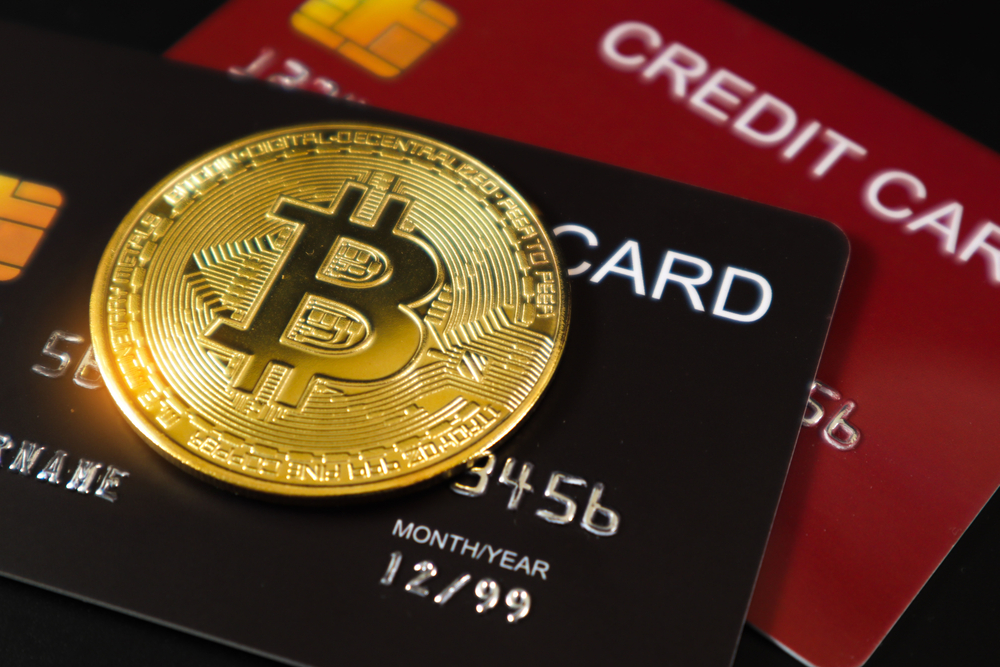Several startups are now integrating cryptocurrency credit cards. Here is everything you want to know about this new development in the financial world.
Crypto is indeed gaining popularity as a valuable asset globally. Crypto data platform Coinmarketcap shows the crypto market boasts more than $2 trillion in valuation and only soaring. Meanwhile, startup and traditional financial firms have seen the opportunity, looking to draw new clients with cryptocurrency.
Instead of offering credit cards with cash back and travel rewards, they provide cards with crypto prizes. Let us learn more about these new cards, what to anticipate, & how to assess whether cryptocurrency credit cards suit your trading wallet.
How Cryptocurrency Credit Cards Work
Cryptocurrency credit cards work like other rewards cards – users receive rewards depending on the card usage. However, in this case, customers receive crypto rewards on their purchases. Beware that every card has its way of processing and awarding cardholders crypto.
Some may have the minimum amount users must spend to qualify for the prizes. For instance, you can get 3% back in cryptocurrency for annual spending worth more than $30K. Thus, check the rewarding process for your desired crypto credit card.
You may have to explore additional steps compared to traditional cards, but it remains worthy for individuals interested in crypto investing. Also, beware that you can access many debit cards, including Crypto.com and Coinbase cards. So, even if you don’t like credit cards, the crypto market has you covered in every opportunity.
Furthermore, remember that cryptocurrency credit cards operate like standard cards, meaning you must pay off monthly balances to avoid late fees or interest. Though you usually purchase things and pay using your card in USD, some crypto cards allow individuals to complete purchases with crypto in their associated trading account.
Moreover, crypto cards impact your credit score, similar to traditional cards. Also, you can incur additional usage fees, including transactional and annual charges. It’s vital to evaluate the terms & conditions for every card before using it.
What to Consider When Interacting with Crypto Credit Cards
Using cryptocurrency cards could be more complex than utilizing traditional cards. Meanwhile, here are some of the things to ponder before applying for a crypto card.
- Benefits
Most cryptocurrency cards are bleak as far as benefits are concerned. So, passionate travelers may find travel reward cards attractive, whereas individuals interested in saving cash on their monthly purchases can use cash-back cards.
- Taxes
The best thing with cryptocurrency cards is users can earn rewards that can surge in value, while travel rewards and cash backs likely lose their value because of devaluation and inflation, respectively. Nonetheless, their bonuses are non-taxable, while crypto is taxable as an asset upon selling. Thus, you may have to consult tax professionals whenever you plan to earn through crypto cards.
Flexibility
As mentioned before, cryptocurrency credit cards differ in various ways. For instance, each card boasts a different crypto collection for rewarding specific cardholders. Remember to check whether the card you plan to use contains your favorite token in its index.
Limitations
Considering varying financial laws from region to region, not all cryptocurrency cards work for everyone. So, check the card’s terms & conditions when applying to determine legibility depending on your residence. Also, international laws are crucial for people managing their trading accounts outside of their nation of residence.
Should You Get a Cryptocurrency Credit Card?
Cryptocurrency credit cards match individuals who boast tremendous interest in crypto investing. Remember, using crypto is more complex than usual cards as far as rewards and points are concerned. Moreover, crypto remains highly volatile, meaning unstable value. Unlike cash backs, you can earn crypto rewards today and lose a substantial value in the coming day.
Also, crypto attracts tax complications you may not find in other credit card systems. Specifically, the IRS considers crypto an asset. Thus, you may have to deal with tax bulls if you sell cryptocurrencies, even those you earned via card rewards. Also, crypto cards have lower rewards than top-market credit cards. Research remains crucial when deciding on crypto credit cards.
Available Cryptocurrency Cards
Some cryptocurrency cards have a waitlist. However, people eager to apply and begin earning can check these open-for-application crypto cards.
Cryptocurrency Debit Cards
- Coinbase Debit Cards – you can receive rewards from various (eighty) crypto types, including BTC, ETH, and DOGE.
- Crypto.com Visa Debit Card – receive rewards in Crypto.com’s CRO token.
Cryptocurrency Credit Cards
- BlockFi Credit Card – receive rewards in different cryptos, including BTC & ETH.
- Brex Business Card – You can use your rewards on either BTC or ETH.
- Venmo Credit Card – Allows you to automatically buy BTC, ETH, LTC, or BCH with cash-back received from purchases.
Ending Thoughts
Crypto joining the limited forms of credit card rewards remains an attractive development in the credit card market. However, similar to all your financial decisions, ensure that cryptocurrency rewards are logical to you before exploring the details. Moreover, though crypto rewards can increase in value, always spend wisely.


